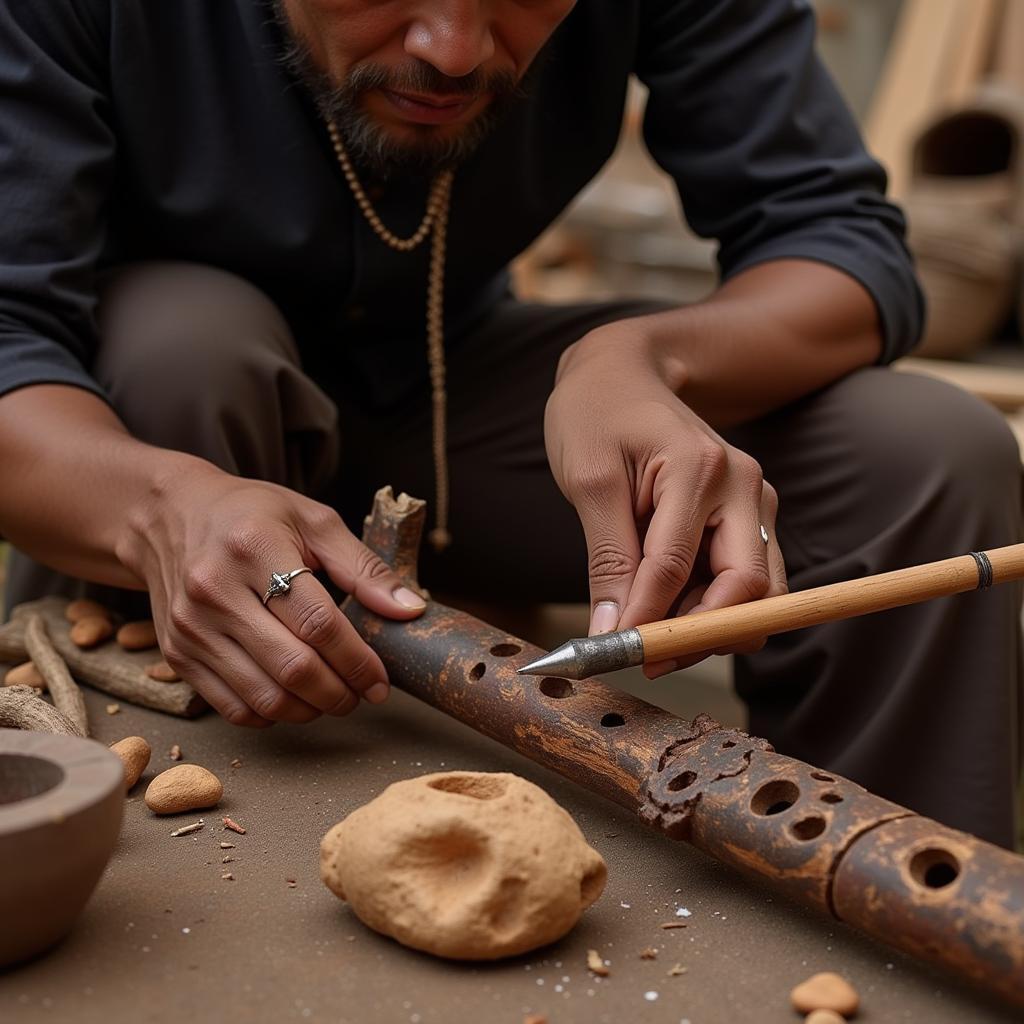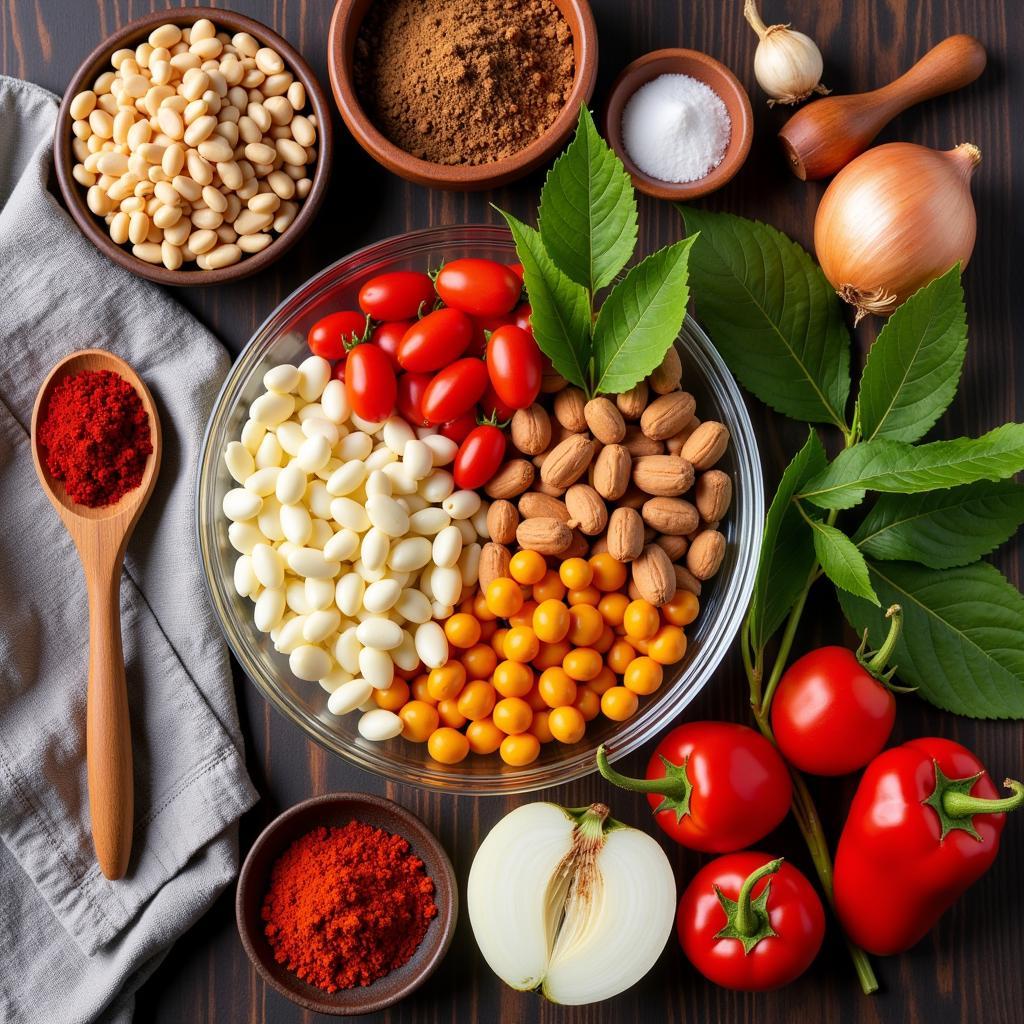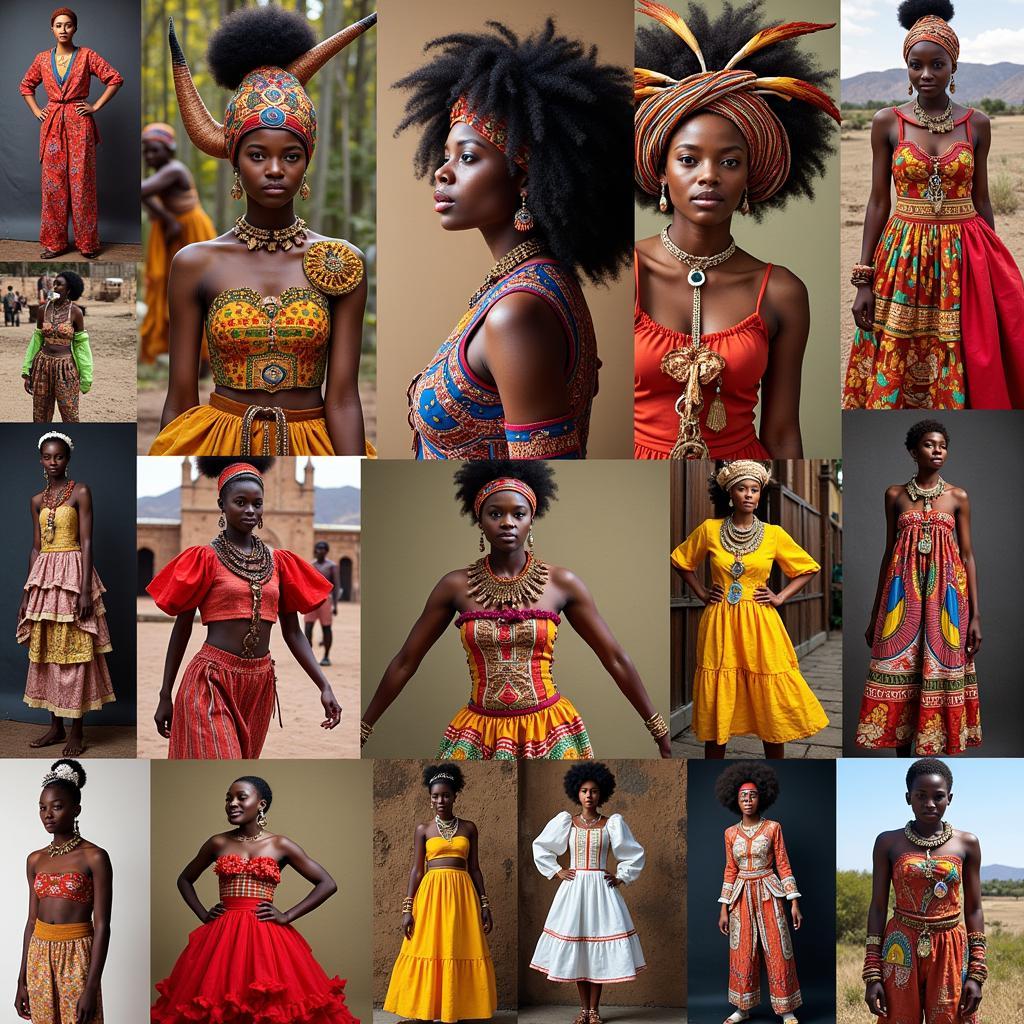Unveiling the Mysteries of West African Voodoo
West African Voodoo, often misunderstood and misrepresented, is a rich and complex spiritual tradition with roots stretching back centuries. Far from the sensationalized portrayals in popular culture, Voodoo, or Vodun as it is more accurately known, is a way of life that intertwines spirituality, ancestry, and connection to the natural world. This article delves into the heart of West African Voodoo, exploring its history, practices, and enduring significance in the lives of millions.
Origins and Evolution of West African Voodoo
The origins of West African Voodoo can be traced back to the Fon people of present-day Benin, specifically in the ancient kingdom of Dahomey. Vodun, meaning “spirit” or “deity” in the Fon language, reflects a belief system that acknowledges a supreme creator god alongside a pantheon of lesser deities, known as loa, who govern various aspects of life, nature, and human experience.
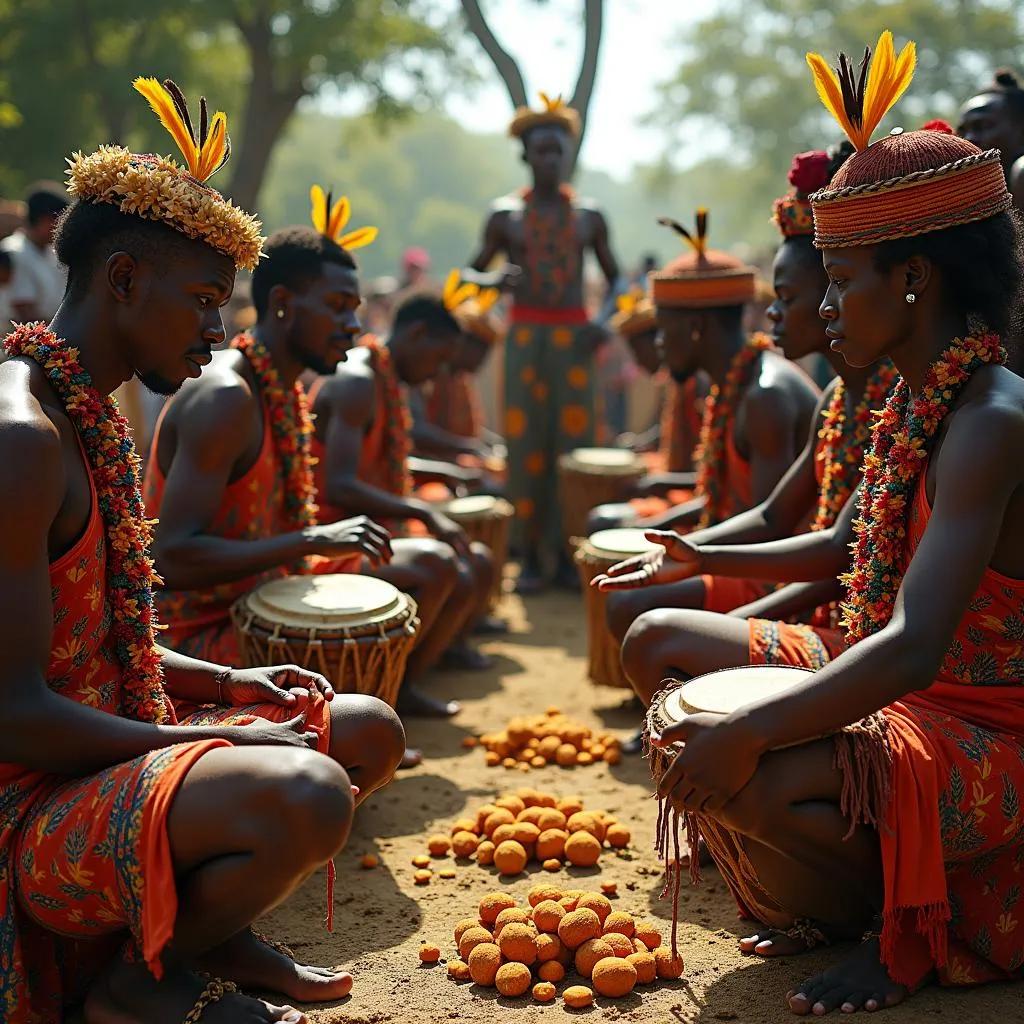 West African Voodoo Ritual
West African Voodoo Ritual
Through the transatlantic slave trade, Vodun traveled across the ocean, taking root in the Americas, particularly in Haiti, where it evolved into Haitian Vodou. While sharing common ancestry, Haitian Vodou developed its unique characteristics, blending West African traditions with elements of Catholicism and indigenous Caribbean beliefs.
Understanding the Core Beliefs of West African Voodoo
At its core, West African Voodoo emphasizes a harmonious relationship between the living and the ancestors. The loa serve as intermediaries between the human and divine realms, offering guidance, protection, and blessings to those who honor them. Central to Voodoo practice is the concept of “Ashe,” a universal life force that flows through all things, connecting individuals to the divine and to one another.
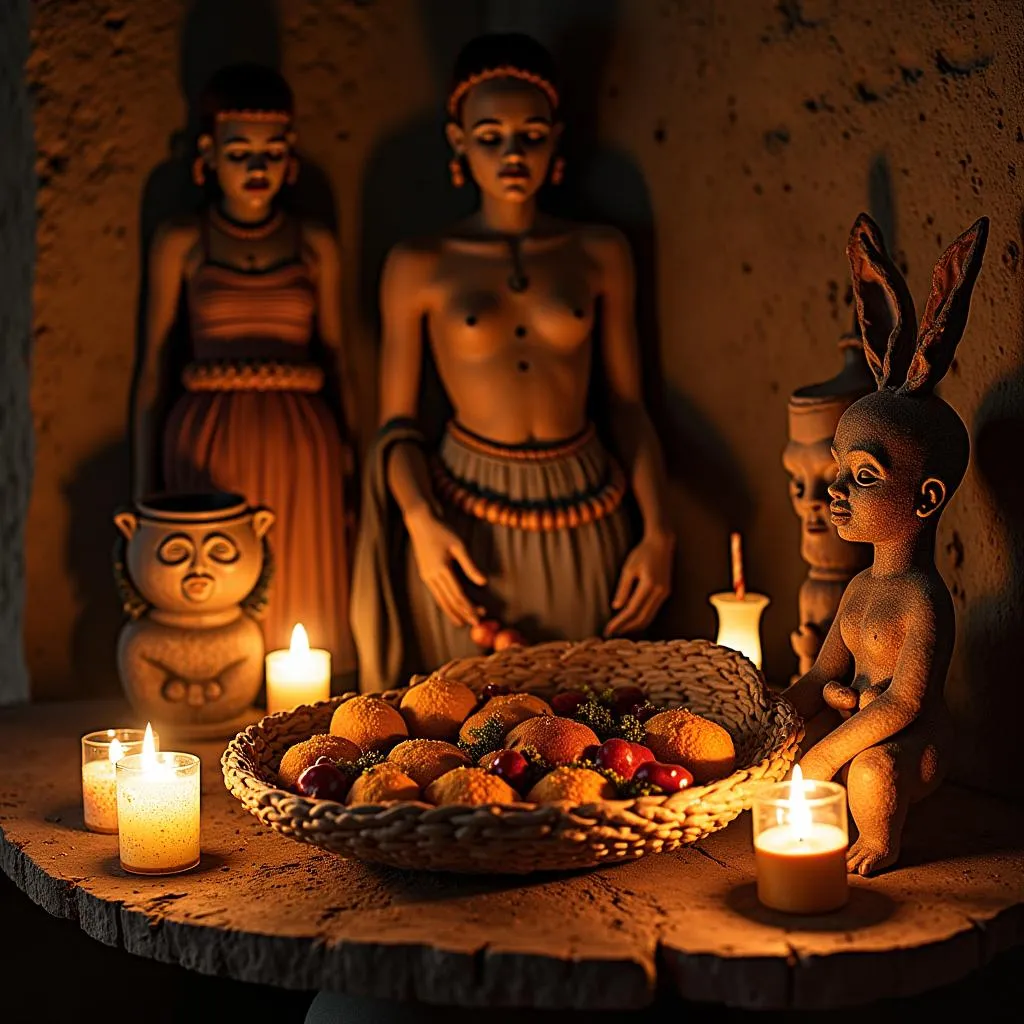 West African Voodoo Altar
West African Voodoo Altar
Ritual Practices and Ceremonies
West African Voodoo ceremonies are vibrant and rhythmic, often involving drumming, singing, and dancing. These rituals serve as a means of communication with the loa, seeking their guidance, expressing gratitude, or requesting assistance. Offerings of food, drink, and other symbolic items are presented to the loa as a sign of respect and devotion.
One of the most well-known aspects of West African Voodoo is the role of the Houngan (priest) or Mambo (priestess). These spiritual leaders undergo years of rigorous training to master the intricacies of Voodoo rituals, herbalism, and divination. They serve as intermediaries between the community and the spirit world, providing guidance, healing, and spiritual counsel.
Addressing Misconceptions and Stereotypes
Unfortunately, West African Voodoo has been subjected to centuries of misunderstanding and misrepresentation, often depicted as a sinister force associated with black magic and curses. These harmful stereotypes stem from a lack of understanding of the tradition’s true nature and its emphasis on balance, respect, and connection to the divine.
It’s important to note that the use of spiritual power for harmful purposes, while existing in any belief system, is strictly condemned within traditional West African Voodoo. The emphasis is always on harnessing spiritual energy for healing, protection, and the betterment of the community.
The Enduring Legacy of West African Voodoo
Despite facing suppression and demonization, West African Voodoo remains a vital and resilient spiritual force in West Africa and its diaspora. It continues to provide a framework for understanding the world, connecting with ancestors, and navigating the complexities of life. By fostering a deeper understanding of its history, practices, and core values, we can begin to appreciate the beauty, wisdom, and enduring legacy of this often misunderstood spiritual tradition.
FAQs about West African Voodoo
- What is the difference between West African Voodoo and Haitian Vodou? While sharing common ancestry, Haitian Vodou developed distinct characteristics influenced by Catholicism and indigenous Caribbean beliefs.
- Is West African Voodoo dangerous? Like any spiritual tradition, West African Voodoo can be misused. However, its core teachings emphasize balance, respect, and ethical conduct.
- Are there different types of loa in West African Voodoo? Yes, the Voodoo pantheon includes a diverse range of loa, each with their own specific domain and attributes.
- Can anyone practice West African Voodoo? While individuals from all backgrounds can learn about Voodoo, becoming a practitioner typically involves initiation and guidance from experienced elders.
- What is the significance of music and dance in West African Voodoo? Music and dance are integral to Voodoo ceremonies, serving as a means of invoking the spirits, expressing devotion, and inducing trance states.
Do you have any further questions about West African Voodoo or other aspects of African culture? We are here to provide you with accurate and insightful information. Feel free to reach out to us at +255768904061, email us at kaka.mag@gmail.com, or visit our office in Mbarali DC Mawindi, Kangaga, Tanzania. Our dedicated team is available 24/7 to assist you.
